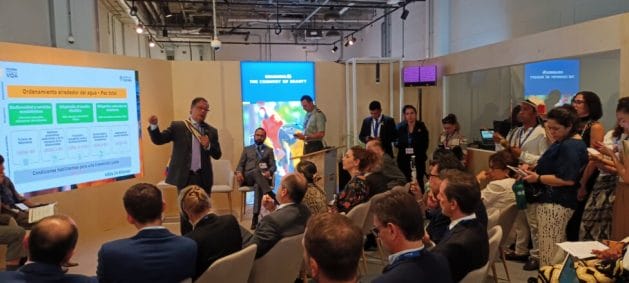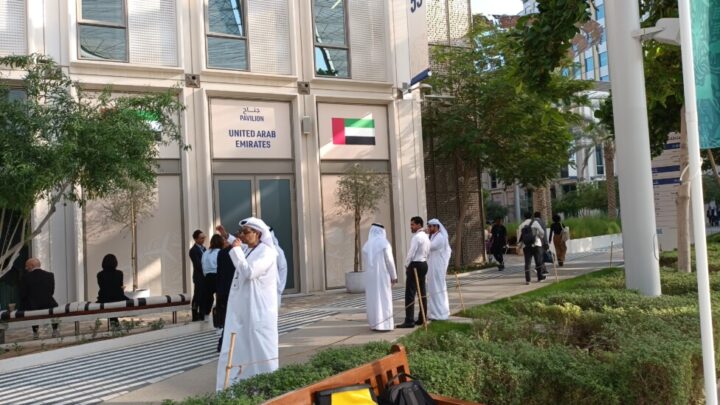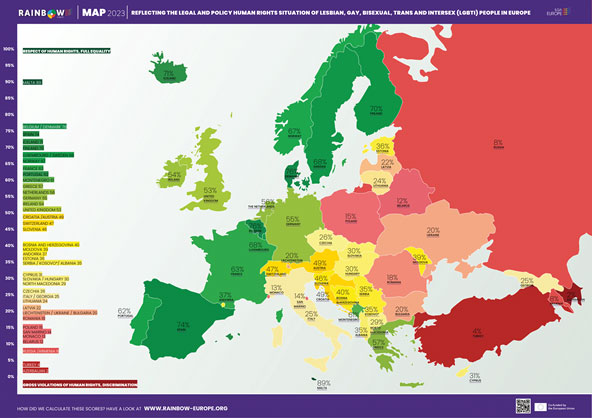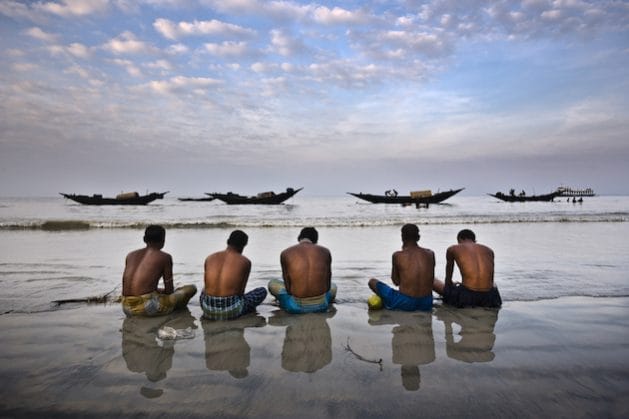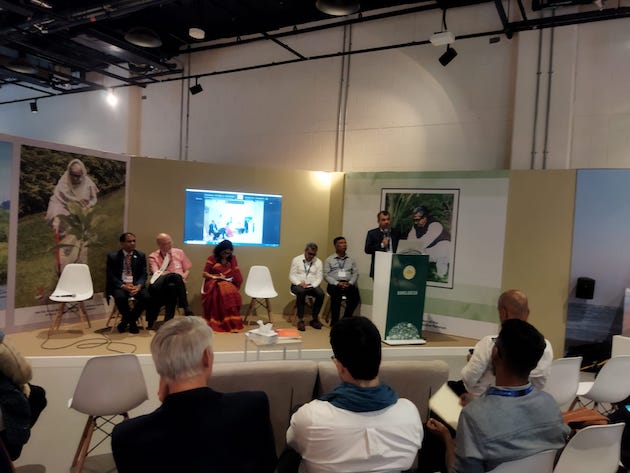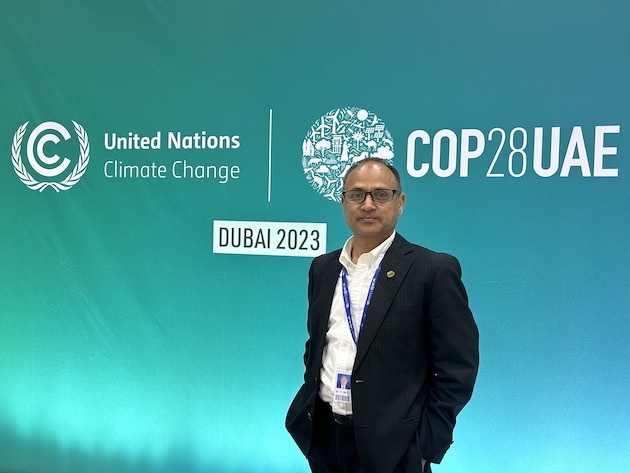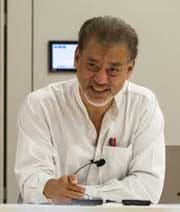
Civil Society, COVID-19, Economy & Trade, Environment, Financial Crisis, Global, Headlines, Labour, Poverty & SDGs, TerraViva United Nations
– With the US Fed raising interest rates, the world economy is slowing as debt distress spreads across the global South, increasing poverty worldwide to pre-pandemic levels, with the poorest countries faring worst.
Extreme poverty continues to be high and is now worse than before the pandemic in low-income countries (LICs) and among those affected by fragility, violence and conflict. The promise of eradicating poverty worldwide by 2030 has become unachievable.

Jomo Kwame Sundaram
The Bretton Woods institutions’ (BWIs) annual meetings in Marrakech in October were only the second-ever in Africa. But the rich nations-dominated BWIs failed yet again to rise to the challenges of our times, setting Africa and the global South even further back.
Instead of fostering cooperation to address the causes and effects of the contemporary catastrophe, neither the International Monetary Fund nor the World Bank governors could agree on joint communiques due to the greater politicisation of multilateral fora.
Indebtedness immobilises governments
Indebtedness and restrictive creditor rules prevent governments from spending more counter-cyclically to overcome the many contractionary tendencies of recent times, besides preventing them from addressing looming social and environmental crises.
The G20’s largest twenty economies have urged strengthening “multilateral coordination by official bilateral and private creditors … to address the deteriorating debt situation and facilitate coordinated debt treatment for debt-distressed countries”.
But its Common Framework to restructure debt has been roundly criticised by civil society, think tanks and even the World Bank on many grounds, including the paltry concessional credit relief offered to a few of the very poorest countries.
In contrast, the G24 caucus of developing countries at the BWIs has emphasised the need for “durable debt resolution measures while collaborating on resolving the structural issues leading to such vulnerabilities.”
But all those advocating purported solutions are not even trying to ensure fiscal space and public spending capacity for counter-cyclical efforts, let alone achieve the Sustainable Development Goals and national development objectives.
Surcharges
The IMF currently imposes additional charges on countries that do not quickly clear their debts to the Fund. Besides the usual fees and interest, borrowing countries paid over $4 billion in such surcharges in 2020-22, during the COVID-19 pandemic.
Surcharges will cost debt-distressed countries about $7.9 billion over six years. The G24 has emphasised that surcharges are pro-cyclical and regressive, especially with monetary tightening.
Governments have undertaken contractionary policies and cut imports for lack of foreign exchange. This deepens the problems of heavily indebted poor countries who cannot but count on the Fund for relief and solutions.
At Marrakech, the governing International Monetary and Financial Committee decided to “consider a review of surcharge policies”. The G24 called for “a suspension of surcharges while the review – which we hope will lead to substantial permanent reduction or complete elimination – is being conducted.”
Rich nations have been divided over surcharges. With Ukraine now among the top surcharge payers, following civil society criticisms, the Biden administration’s refusal to review surcharges in 2022 was heavily criticised by the US Congress.
Deepening austerity
IMF fiscal austerity measures of the 1980s returned with a vengeance after the 2008 global financial crisis, and then again during the Covid-19 pandemic from 2020. Most Fund loans require cutting the public sector wage bill (PSWB), the budget line to pay employees.
Most wage earners in many LICs, including nurses, teachers and other social service workers, work for the state, directly or indirectly. Although much needed, these employees have been more likely to be targeted by such budget cuts.
PSWB cuts may involve hiring or wage freezes, or limiting, or even cutting wages. These inevitably undermine government capacities and services. Fiscal consolidation has also involved raising more indirect, consumption taxes, and tax exemptions, e.g., for essential goods such as food.
In 38 countries with over a billion people, loan conditionalities during 2020-22, the three years of the Covid-19 pandemic, meant regressive tax reforms and public spending cuts. PSWB and fuel or electricity subsidy cuts are also common demands worsening economic contractions.
Austerity bound to fail
But the IMF’s own research suggests such austerity policies are generally ineffective in reducing debt, their ostensible purpose. The April 2023 IMF World Economic Outlook acknowledged austerity programmes and fiscal consolidations “do not reduce debt ratios, on average”. Yet, its Fiscal Monitor still demands “fiscal tightening” of most developing countries.
The new IMF-World Bank debt sustainability framework sets the LICs’ external debt-to-GDP ratio limit at 30% or 40%. It insists debt-distressed economies must have lower ratios than ‘strong’ countries, effectively further penalising the weak and vulnerable.
Instead of enabling consistently counter-cyclical macroeconomic frameworks, the IMF’s current short-termist approach is mainly preoccupied with annual, or worse, quarterly balances, mimicking corporate reporting practices.
Such short-termism further limits fiscal space, effectively preventing or deterring public sector investments requiring longer-term macroeconomic frameworks to realise benefits. This discourages ‘patient’ medium- to long-term investments required for national economic planning and transformation, essential for sustainable development.
Restrictive debt and fiscal targets have meant even less public investment. This is typically required of borrowing countries as a credit conditionality. Annual IMF Article IV consultations cause other countries to also accept similar constraints to avoid Fund disapproval.
While a few better-off economies enjoy full employment, most countries face further economic contraction, not least due to interest rate hikes led by the US Fed and their many effects. Instead of being part of the problem, the IMF should be part of the solution.
IPS UN Bureau


